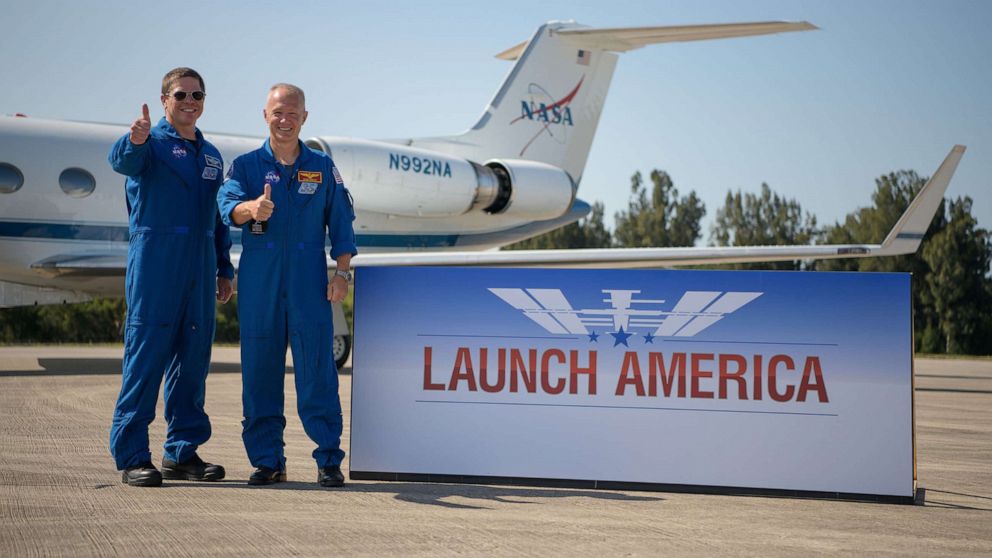SpaceX and NASA set for 'milestone' launch of astronauts to the International Space Station

In a historic moment for the U.S. space program, NASA and SpaceX are set to launch American astronauts into space on a U.S. spacecraft and from U.S. soil for the first time in nearly a decade.
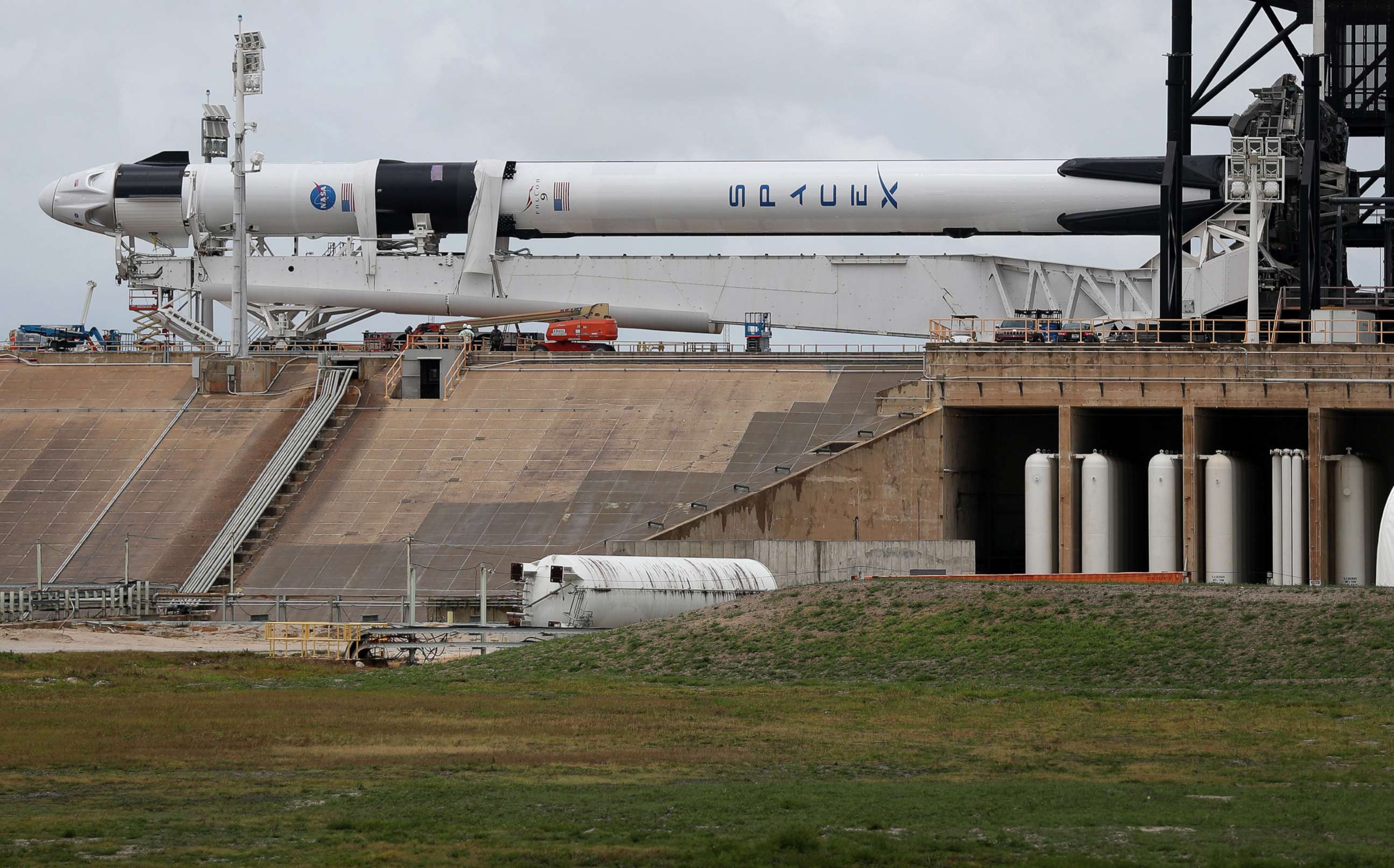
"This is a milestone in the history of the U.S. space program. It's only the fifth time that people have been launched on a new U.S. spacecraft," John Logsdon, a professor emeritus at George Washington University's Space Policy Institute and former member of the NASA Advisory Council, told ABC News.
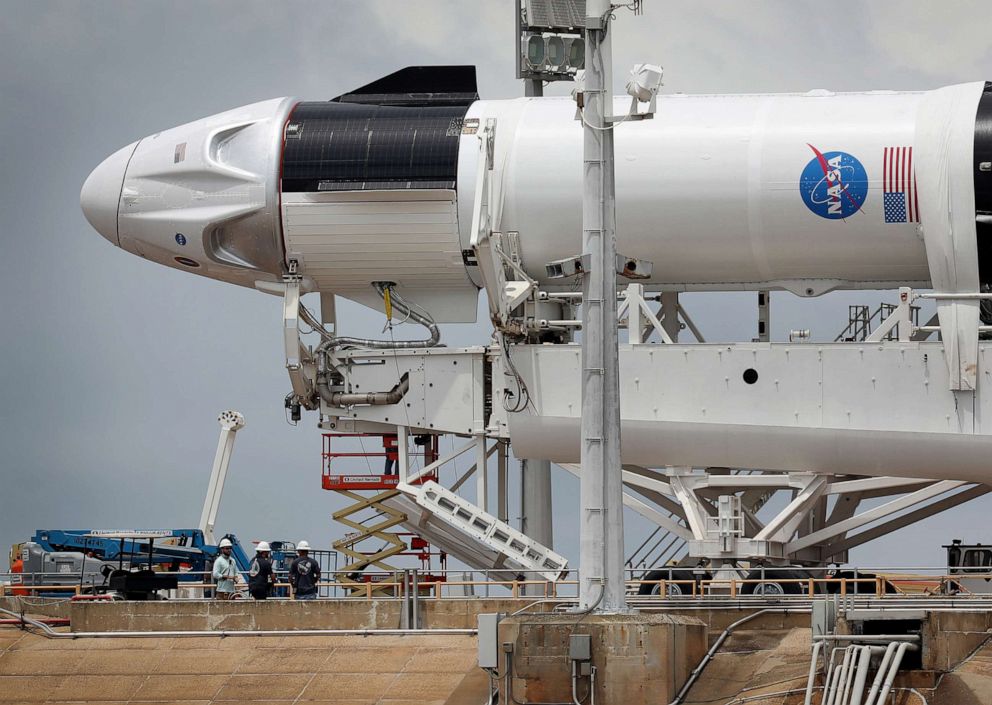
The SpaceX Demo-2 test flight will carry NASA astronauts Robert Behnken and Douglas Hurley to the International Space Station and is scheduled for launch on Wednesday. If all goes as planned, the Crew Dragon spacecraft, propelled by a Falcon 9 rocket, will dock at the space station just before noon on Thursday.
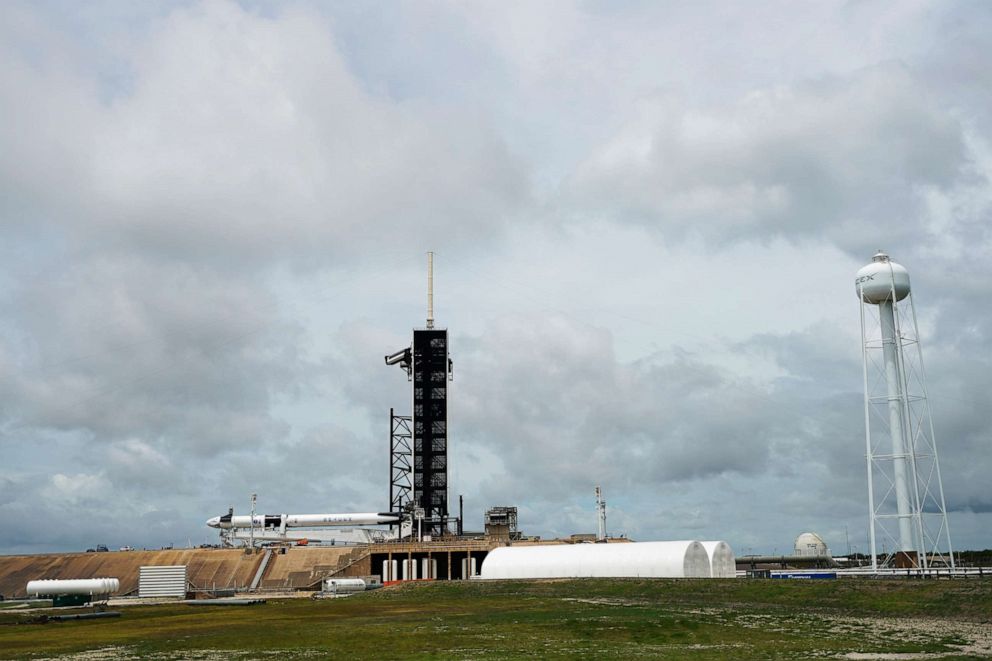
As of Tuesday, the weather forecast for the area of the launch site includes scattered thunderstorms and wind gusts of up to 15 mph. Electrically charged cumulonimbus clouds could also be in the vicinity of the launch area tomorrow.
Video on Tuesday showed SpaceX engineers doing the final maintenance touches on the Falcon 9 rocket, replacing filters to help make sure the Crew Dragon capsule remains cool ahead of Wednesday's launch.
Tune into live coverage of the historic launch on ABC News Live and National Geographic on Wednesday, May 27, starting at 3 p.m. ET. Also, check back at ABCNews.com for live updates.
The mission passed its Flight Readiness Review, the final major hurdle before lift-off, on Friday.
The last time the U.S. sent Americans into space on U.S. equipment and from U.S. soil was in July of 2011, during the last Space Shuttle flight.
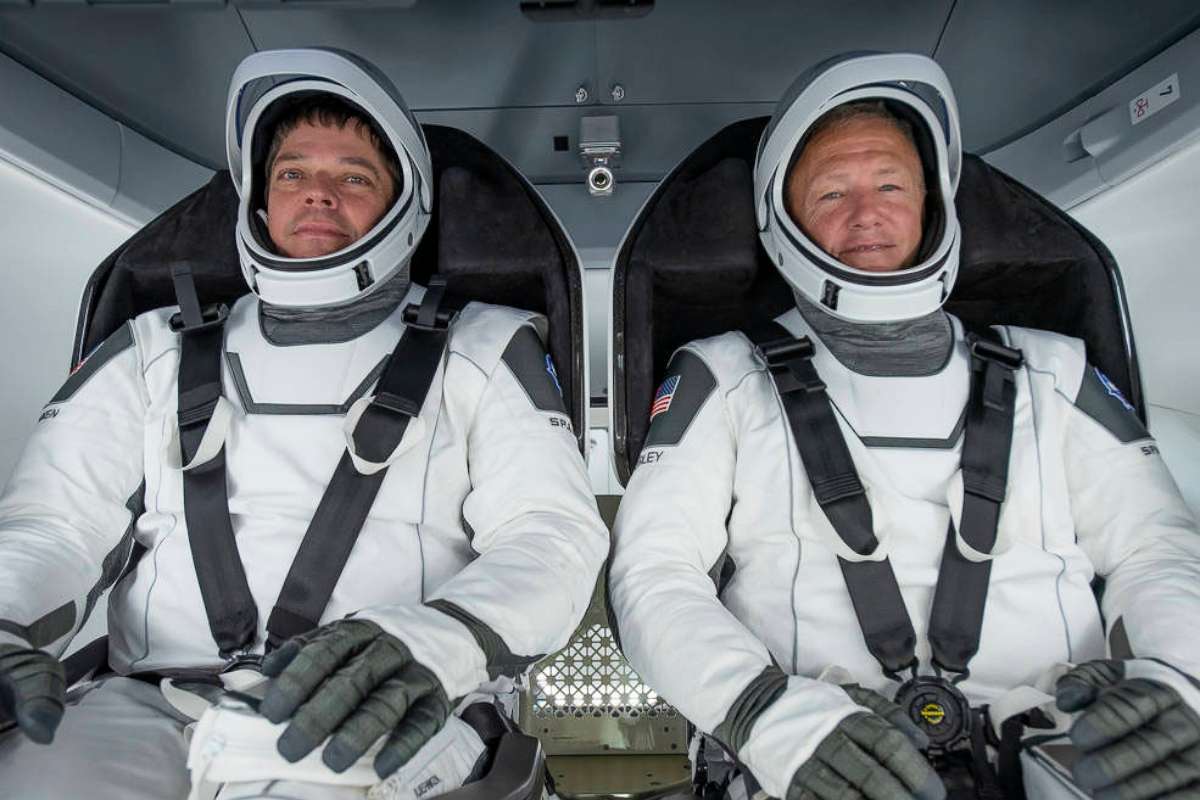
The coronavirus pandemic down here on Earth took center stage during a virtual news briefing with the astronauts on Friday.
"We’ve been tested at least twice so far, and rumor has it we might be tested again before we go," Hurley said. "I think in general that seems like plenty, especially considering we’ve been in, for all intents and purposes, a quarantine now since about March 15."
As active astronatus, they are also used to having their health screened closely, Hurley said.
"We just, I think after all these years, are kind of used to the poking and prodding and blood draws and all of the things that come along with flying into space," he said.
He added that he estimated they have "been in quarantine probably longer than any space crew has ever been in the history of the space program."
Behnken added, however, that this is the first time, "we've seen the rest of the world have to take on the same precautions that we do leading up to the launch."
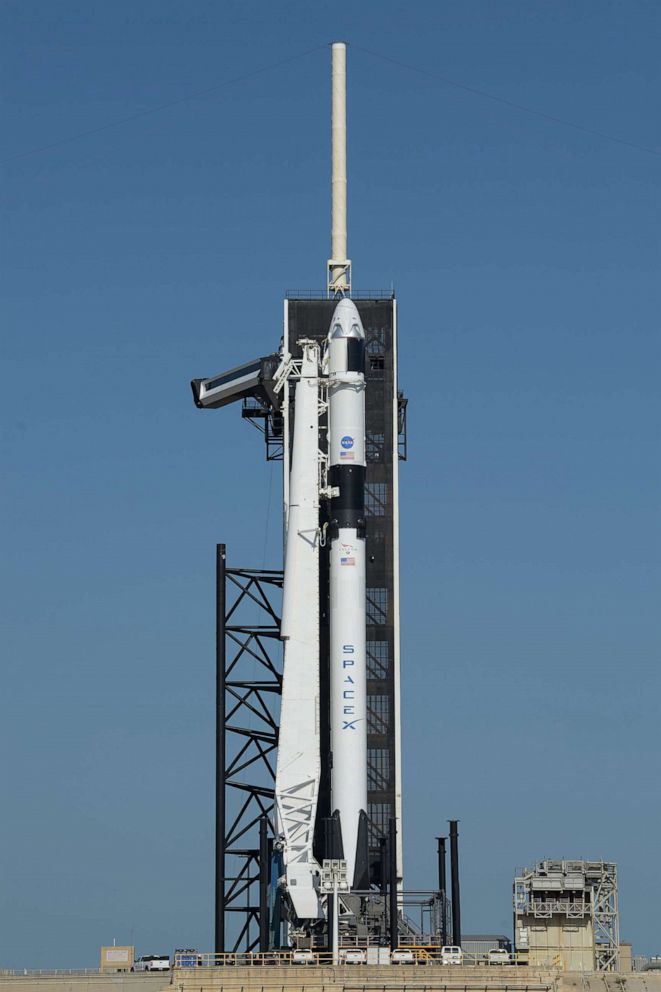
In this time of mounting uncertainty, Behnken said he hopes the nation can find hope in watching the historic launch amid the global crisis.
"I hope the nation can look at this and recognize that this is something that we are still going to accomplish, this is still something that we are still going to be successful at and we’re going to do it in the face of the pandemic," he added. "We’ll figure out a way to work through it and work around it."
"We’’ll continue to be COVID tested as we lead up to launch, because we, of course, don’t want to take that up to the International Space Station," he added. "But where there’s a will there’s a way, and there’s been a will to make that happen, and we’re just proud to be a part of it."
NASA's administrator Jim Bridenstein echoed the astronauts' sentiments at a later news briefing Friday.
"These are different times, but it is also a time when we need to be doing amazing things as a nation and inspiring the entire world and that’s what we’re doing," Bridenstein said.
Part of the reason the launch is so historic is that it makes the country no longer reliant on Russia for seats to space.
"It reestablishes an essential capability if the United States is really going to be the leading space-faring country in the world, it needs the ability to launch its own people with its own equipment from its own territory," Logsdon said. "It removes an almost embarrassing dependence that has persisted for the last nine years."
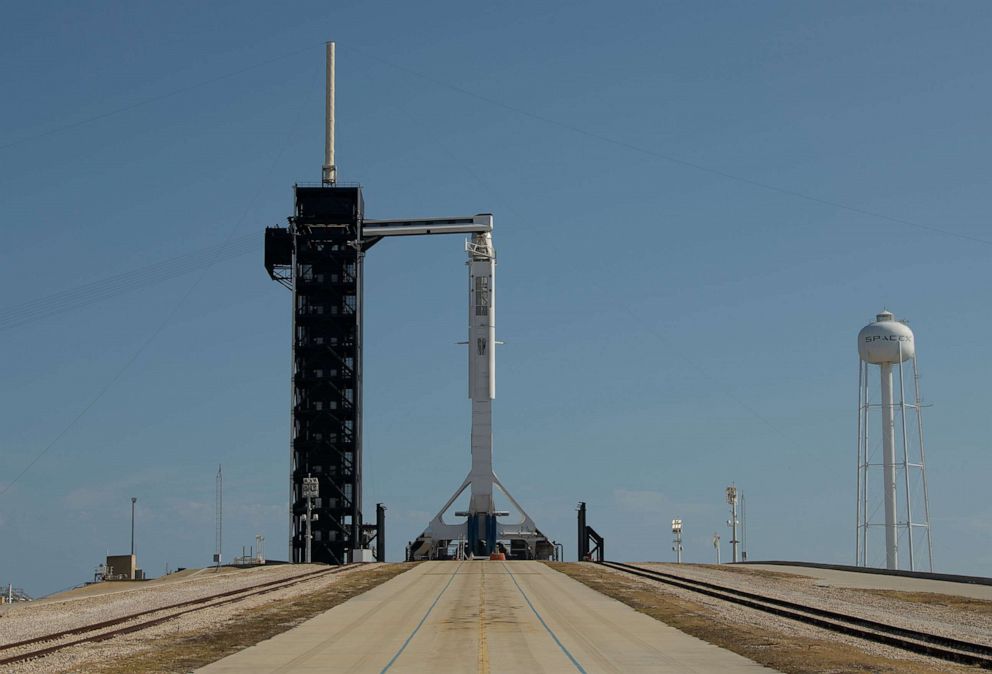
SpaceX and Boeing have been competing to be the first to launch NASA astronauts to the ISS. Boeing's hyped-up, unmanned test flight for its Starliner spacecraft in late December, however, infamously did not go as planned as the spacecraft never ended up making it to the ISS.
"Most people three years ago would have said Boeing would be first, but it turns out SpaceX has made steady progress," Logsdon said.
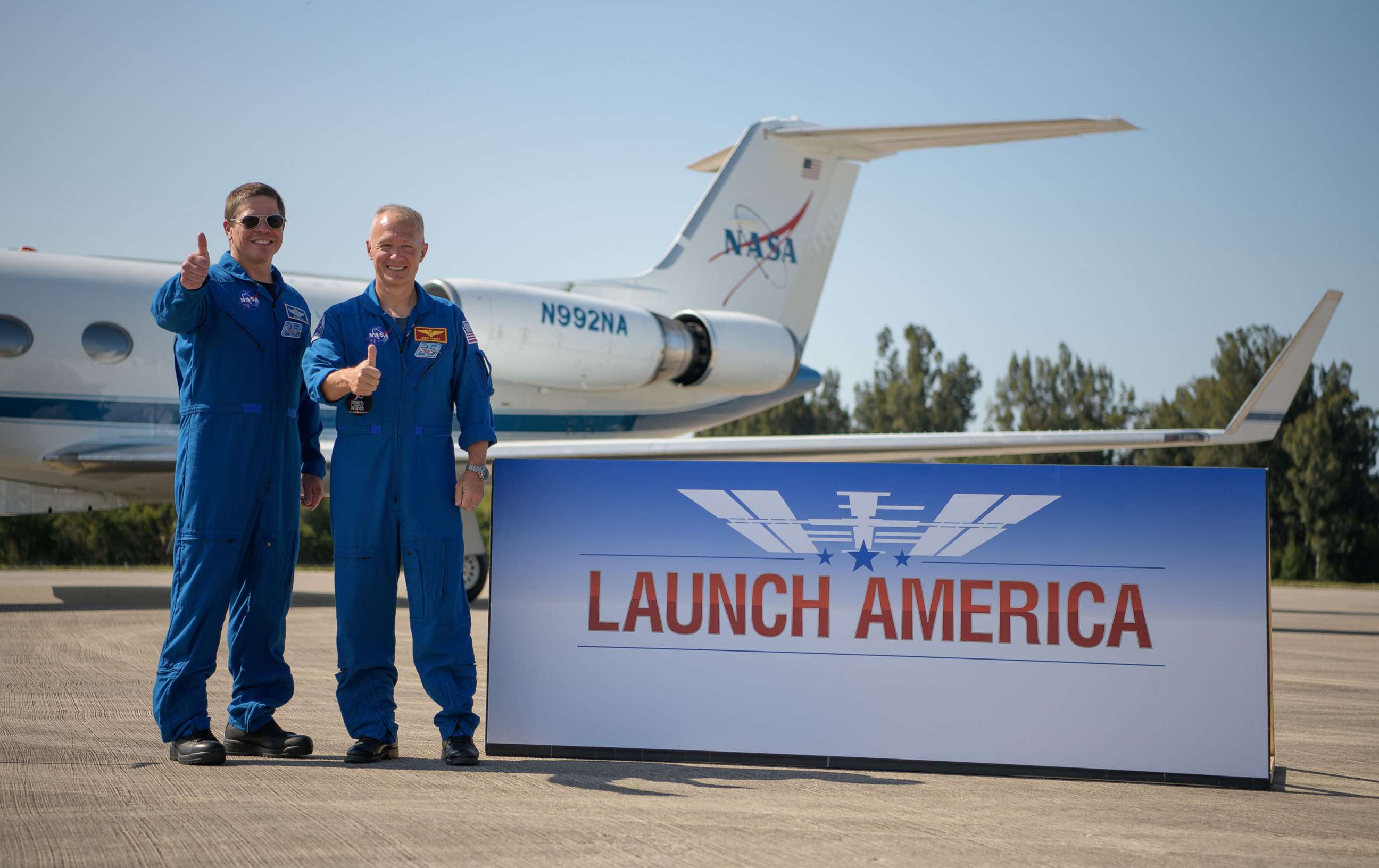
If next week's launch goes well, it could bring the Elon Musk-founded private spaceflight company closer to one of its goals of leading the space tourism industry, and eventually bringing private citizens to space.
"That's part of the business plan for SpaceX," Logsdon said, "Is to make this capability available to paying customers, not just to NASA."
This report was featured in the Wednesday, May 27 episode of “Start Here,” ABC News’ daily news podcast.
"Start Here" offers a straightforward look at the day's top stories in 20 minutes. Listen for free every weekday on Apple Podcasts, Google Podcasts, Spotify, the ABC News app or wherever you get your podcasts.
Tune into live coverage of the historic launch on ABC News Live and National Geographic on Wednesday, May 27, starting at 3 p.m. ET. Also, check back at ABCNews.com for live updates.
